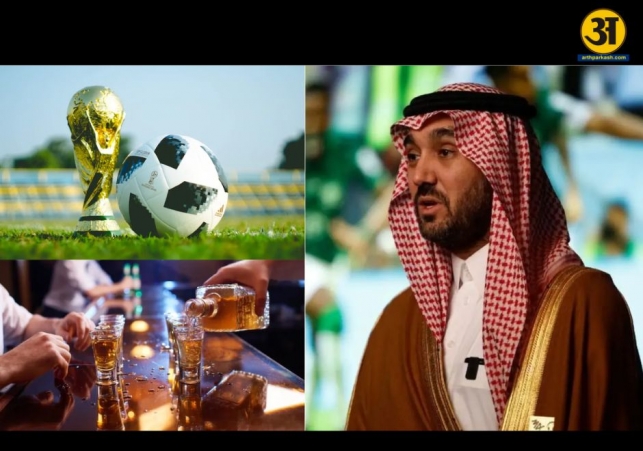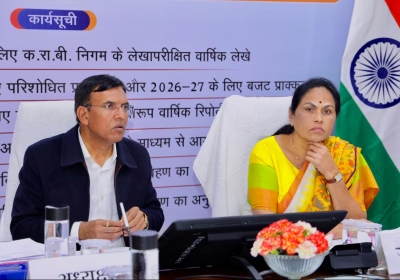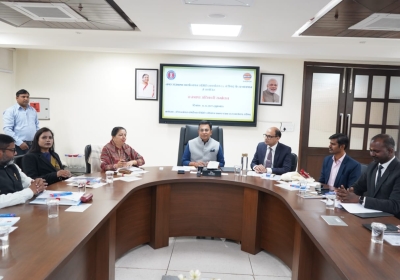
Saudi Arabia responds to alcohol ban reports for 2034 World Cup
Saudi Arabia clarifies stance on lifting 73-year alcohol ban ahead of FIFA World Cup 2034
- By Gurmehar --
- Monday, 26 May, 2025
Saudi Arabia recently denied reports that it plans to lift its 73-year-old ban on alcohol sales. The ban has been in place for many years because alcohol is forbidden for Muslims under Islam. The news of a possible change came from a wine blog, which claimed the kingdom might allow alcohol sales in tourist areas as part of preparations for hosting the FIFA World Cup in 2034. However, Saudi officials said this information is not true and there is no plan to change the ban.
This news caused many people in Saudi Arabia to discuss the issue online. Saudi Arabia calls itself the Custodian of the Two Holy Mosques, which are the two most important religious sites for Muslims, located in Mecca and Medina. Because of the kingdom’s strong religious identity, any changes regarding alcohol laws are very sensitive.
Saudi Arabia and Kuwait are the only two countries in the Gulf region where alcohol sales are completely banned. However, there have been some small signs of easing alcohol restrictions in recent years. For example, last year the first alcohol store opened in Riyadh, the capital city. This store sells alcohol only to non-Muslim diplomats. Before this, alcohol could be bought only through diplomatic channels or illegally on the black market.
Reforms under Crown Prince MBS
Saudi Arabia has been going through many changes under Crown Prince Mohammed bin Salman, known as MBS. Since taking power, MBS has introduced many reforms to modernize the country and reduce its dependence on oil. These reforms are part of a larger plan called Vision 2030, which aims to open Saudi Arabia to the world and improve its economy.
Some of the biggest changes MBS has made include giving women more rights. In 2017, women were allowed to drive for the first time. Women over the age of 21 can now get passports and travel abroad without needing permission from a male guardian. They can also register births, marriages, and divorces themselves, which was not allowed before.
MBS has also relaxed some strict rules about public behavior. For example, the religious police, who used to enforce strict Islamic laws on public gatherings, have less power now. Rules about men and women being separated in public places have been eased. The kingdom now allows activities that were once banned, such as dancing at music festivals in the desert, watching fashion shows, and going to movie theaters.
One of MBS’s biggest projects is a $14 trillion megacity called NEOM. This futuristic city will include "The Line," a long, smart city built without cars, and "Trojena," a vertical ski village in the desert. These developments have attracted attention from around the world and show Saudi Arabia’s efforts to become a modern, global destination.
The ban on alcohol in Saudi Arabia has been in place for 73 years, following Islamic laws that prohibit drinking for Muslims. Since Saudi Arabia is home to Islam’s holiest sites, the kingdom takes these religious rules very seriously. The sale, import, and consumption of alcohol have long been illegal, with strict penalties for those caught breaking the laws.
The strict ban on alcohol separates Saudi Arabia from many other countries, especially its neighbors in the Gulf region. While some Gulf countries allow alcohol sales in certain hotels and for tourists, Saudi Arabia and Kuwait maintain a total ban. This is part of the kingdom’s conservative social policies, influenced by religious traditions.
ALSO READ: Joe Biden may have known about Prostate Cancer symptoms before official diagnosis
Social impact and online debate
When the news about potentially lifting the alcohol ban broke out, it quickly caused a stir online. People in Saudi Arabia shared different opinions, reflecting the tension between tradition and modernization. Some supported the idea of easing restrictions, hoping it could boost tourism and improve the economy. Others strongly opposed the idea, worried it would harm the kingdom’s religious values and social fabric.
The Saudi government’s quick denial helped calm some of the debate. The kingdom made clear that it respects Islamic laws and the ban on alcohol will remain in place, especially as it prepares to host the 2034 FIFA World Cup. The authorities want to avoid any confusion or misunderstanding that might upset the public or create problems ahead of the major international event.
Vision 2030 is the Saudi government’s ambitious plan to transform the economy and society. The kingdom wants to move away from relying mostly on oil revenues and develop other industries such as tourism, entertainment, and technology.
Allowing more entertainment and cultural activities has been part of this plan. Saudi Arabia has hosted concerts, opened cinemas, and promoted sports events to attract both locals and international visitors. The government hopes these efforts will create jobs and improve the quality of life.
However, alcohol remains a sensitive issue. While some reforms have been accepted, the authorities are cautious about changes that might conflict with Islamic teachings. So far, the alcohol ban remains firmly in place, even as Saudi Arabia opens up in other ways.
Saudi Arabia is trying to attract more tourists by making the country more welcoming. The government has introduced tourist visas and promoted historical and natural sites. It hopes to welcome millions of visitors in the coming years, including people coming for major events like the 2034 FIFA World Cup.
With more tourists expected, there have been questions about whether the alcohol ban will change to meet international expectations. Many visitors come from countries where alcohol consumption is common, so the debate about loosening the ban is connected to Saudi Arabia’s plans to become a global tourist destination.
Despite the rumors, Saudi Arabia has clearly stated that alcohol will not be allowed to be sold or consumed publicly. The kingdom is maintaining its cultural and religious identity while trying to balance the needs of modernization and tourism.
Saudi Arabia’s 73-year-old alcohol ban remains unchanged. The kingdom denied reports about lifting the ban, especially in connection to the 2034 FIFA World Cup. The government continues to respect Islamic laws that forbid alcohol for Muslims.
At the same time, Saudi Arabia is undergoing many reforms under Crown Prince Mohammed bin Salman’s Vision 2030. These reforms aim to modernize the country and diversify the economy. Women’s rights have improved, entertainment options have expanded, and big projects like NEOM are planned.
As Saudi Arabia prepares to host international events and welcome tourists, it balances modernization with maintaining its religious and cultural values. The alcohol ban remains a symbol of the kingdom’s strong Islamic identity and is not expected to change anytime soon.





